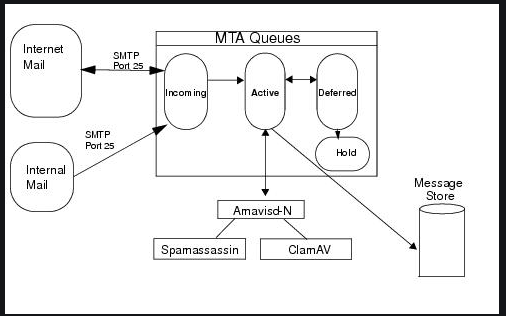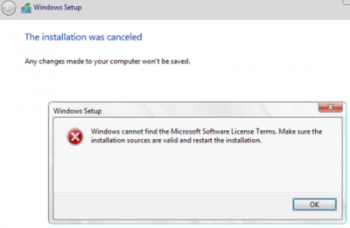With the advent of information technology and computer sciences, an established and renowned business is only considered well reliable enough, if it has a website hosted.
Not just for businesses, the trendsetters of today, i.e., the bloggers, opt to create and host their own personal website to evince their content validity, reliability and overall enhance their popularity.
For this purpose, the pricey web hosting services with extravagant features do not always come in handy.
For simple website hosting and to support small-scale start-ups or companies, and even in some cases, to support large-scale enterprises, the open-source and easy web hosting servers might prove to be a better option.
Here at Ibmi Media, as part of our Server Management Services, we regularly help our Customers to perform Linux OS Software Installation tasks.
In this context, we shall look into the top best open-source and user-friendly web hosting servers.
1. Apache
Launched in 1995, Apache HTTP Server is a free, open-source, and cross-platform compatible web hosting server developed by Apache Software Foundation. The server is also known as Apache or httpd in Red Hat distributions. Since its inception, Apache has grown rapidly to become one of the most widespread, acclaimed, and widely used web servers, powering more than 52% of all the currently existing websites.
Written in C language, Apache is one of the most adaptable and customizable web hosting servers.
Apache supports a modular structure and provides an extensive list of modules owing to which the platform enhances and broadens the web server’s functionality. Some of the modules in playing a key role in the enhanced modular structure of the platform, are mod_ftp which provides the FTP support for file uploads and downloads, mod_file_cache enables caching, mod_proxy enables a proxy/gateway, mod_proxy_balancer allows load balancing for all supported protocols, and mod_ssl that enables support for SSL / TLS encryption protocols, and many more.
Moreover, the extensive modular structure enables Apache to provide multi-protocol support such as both IPv4 and IPv6 support and the most frequently adopted HTTP, HTTP/2, and HTTPS protocols. Other than that, the platform also enables users to host multiple domains or websites via virtual hosting or by enabling one server to host multiple domains.
Due to its enlarged customer base and customer usage, Apache provides great documentation and integrated support from other software projects making it an overall easy-to-use and reliable platform.
Get it now from https://httpd.apache.org/download.cgi
2. Nginx
The founder, Igor Sysoev developed the ultimate web hosting server, NGINX in 2002, which was officially launched in the year 2004. Back in the day, the problem of handling ten thousand concurrent connections, i.e., the so-called C10K problem, was a major issue and much-concerned topic, NGINX brought a solution to this.
The diverse, open-source, and yet cross-platform compatible webserver, NGINX hosts more than 30% of all the current functioning websites.
NGINX supports and is based on an asynchronous event-driven architecture that enables handling numerous concurrent sessions regardless of their size and thereby resolving the infamous C10K problem. The powerful web hosting server is capable to handle up to 500,000 requests per second along with assuring minimal resource utilization.
Other commendable features include its ability to provide an enhanced reverse proxy mechanism, load balancer, IMAP/POP3 proxy server, and an API gateway. With its release and ever since its inception, NGINX has given strict competition to Apache owing to its lightweight nature, easy-to-use capability, and enhanced adaptability.
NGINX is a powerful web hosting server with name-it-and-you-get-it features and functionalities, some of the many enhanced and diverse features include FastCGI caching, Access control, error redirection, WebSockets, keepalive and pipelined connections, etc.
NGINX being a product of a stable organization with commendable experts provides a reliable support structure enabling users to get answers to any query and assuring an enhanced user experience.
Request a free trial now from https://www.nginx.com/free-trial-request/
3. Lighttpd
Lighttpd web server, also known as "lightly" webserver was developed by Jan Kneschke in 2003. As quite well marketed via its name, the "lightly" web server is renowned for its minimal CPU resource consumption and enhanced speed and load optimization. The platform is open-source and supports cross-platform ensuring acclamation across the globe.
Lighttpd assures guaranteed user satisfaction and an overall enhanced experience owing to its capability to overcome the challenges of low-memory and low-CPU environments and still deliver ultimate solutions and user experience.
Lighttpd comes equipped with all the features and functionalities of any web server such as supporting numerous concurrent connections, supports FastCGI, CGI, and SCGI for interfacing programs, SSL/TLS support, HTTP compression, supports applications written in PHP, Python, Perl, and Ruby, provides virtual hosting, etc.
Along with providing extravagant capabilities and features, the platform ensures minimal resource utilization with optimal speed owing to its single-threaded web server mechanism that seamlessly handles a number of requests per second parallelly. The web server is an optimal choice for the users trying to host simple and lightweight websites without requiring any additional advanced features such as SSL proxy, HTTP/2, etc.
Get it now from https://www.lighttpd.net/download/
4. Caddy
Developed by Matthew Holt in 2015, the efficient and fast cross-platform and open-source web server is written in Go by Google. The platform provides an easy mechanism and solution to users looking for an intuitive and simple web hosting server, yet providing and assuring a strong architecture enabling reliable web hosting services.
With Caddy, there are no external dependencies, making a platform capable of managing built-in functionalities and enhanced features thereby enhancing its adaptability without any conflict with libraries. Hence, the installation and usage journey of the platform is quite simple and user-friendly making it an easy-to-go-with platform.
Caddy despite offering and providing its users a powerful web hosting server, also offers commendable features such as an enhanced reverse proxy mechanism, load balancer, and an API gateway.
Other than that, Caddy provides support for HTTPS, IPv6, and HTTP/2, improved WebSockets skill, and seamlessly manages the SSL/TLS certificate renewals on its own. Despite these, many other features and capabilities are offered by the platform such as virtual hosting, URL rewrites, caching mechanisms, etc. As compared to Apache and Nginx, Cassy is not a very famous web server but is capable to host any website with a competing seamless experience as others in the list.
Get it now from https://caddyserver.com/download
5. Apache Tomcat
Apache Tomcat, developed by Apache Software Foundation in 1999, is an implementation of Java servlet container extending its services as an open-source web hosting server. “Servlet” as the name suggests, is a Java program incorporating the functionalities of a server.
Servlets are capable to answer and handle any kind of request, however, the most commonly used and implemented are web server applications thereby providing an alternative to the renowned and much-acclaimed PHP and ASP.NET. The Java servlet, i.e., the Apache Tomcat comes equipped with the functionality to seamlessly integrate or interact with the Java servlets along with catering JavaServer Pages (JSP), Java Expression Language (Java EL), and such other technical specifications at the same time.
Not as commonly adopted as Apache or Nginx, the platform still holds the title for powering up to 1% of the total currently functioning websites.
Apache Tomcat is best for hosting Java applications. Though, if applied for proper extensions, the web server can act as any other web server capable of serving local files as HTTP documents.
Get it now from https://tomcat.apache.org/
[Need assistance in installing Software Packages on any Linux Distribution ? We can help you. ]
Conclusion
This article covers the top functioning web servers in the market that are rated best by the reviewers and users.
With the surge of growing websites, the demand and need for optimal, user-friendly, and open-source web servers are witnessing a great influx. Each day, a new web server is launched with enhanced functionalities and commendable features.
Apache tops our list of the best five web servers currently existing. The diversity of the features offered by Apache and the second-best web server as per our list, i.e., NGINX are without a doubt, unmatched.
Lighttpd offers a sleek and lightweight web serving experience.
Whereas Caddy and Apache Tomcat are best fit for users trying to host Go language-based applications and Java-based applications, respectively.
Each web server provides a satisfactory user experience and is among top best renowned open-source web servers.
The Best Web Servers includes:
1. Apache HTTP Server
2. Nginx
3. Apache Tomcat
This article covers the top functioning web servers in the market that are rated best by the reviewers and users.
With the surge of growing websites, the demand and need for optimal, user-friendly, and open-source web servers are witnessing a great influx. Each day, a new web server is launched with enhanced functionalities and commendable features.
Apache tops our list of the best five web servers currently existing. The diversity of the features offered by Apache and the second-best web server as per our list, i.e., NGINX are without a doubt, unmatched.
Lighttpd offers a sleek and lightweight web serving experience.
Whereas Caddy and Apache Tomcat are best fit for users trying to host Go language-based applications and Java-based applications, respectively.
Each web server provides a satisfactory user experience and is among top best renowned open-source web servers.
The Best Web Servers includes:
1. Apache HTTP Server
2. Nginx
3. Apache Tomcat














